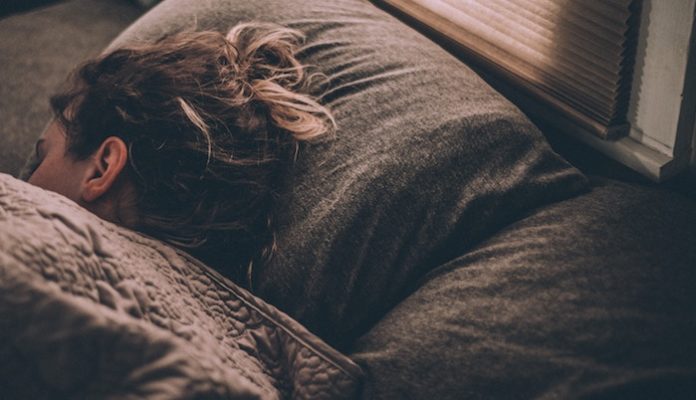CBD and THC are often confused for each other because they share a lot of the same roots and benefits. They can both be derived from hemp or cannabis, and they can both offer a wealth of health and wellness benefits.
However, they have many differences. THC has psychoactive properties, so it can make you high. CBD, on the other hand, does not have the same psychoactive component, so you can enjoy many of the benefits of cannabis without losing your mental clarity.
Additionally, THC is only sold legally in states where it’s legal to sell cannabis products. CBD can be found in these dispensaries too, and while you won’t find it being sold in states where cannabis products are not legal, you can find it online. It’s legal to sell CBD online across the United States as long as the THC content is less than 0.3 percent of the total. All top-rated CBD oil sold online will fit this bill.
Now that we’ve looked at some of the similarities and differences, let’s consider which is more effective for sleep, CBD or THC. Both hold many claims that it can help individuals fall asleep and stay that way, but their differences indicate that one could be better than the other. If you’re seeking an effective sleep aid (and THC is a legal option for you), you might consider all the factors before choosing between THC and CBD.
CBD and Sleep
A huge barrier to understanding CBD and sleep exists because there’s not much research on the subject. For many years, CBD was classified as a Schedule 1 drug, which places specific restrictions on clinical studies. The U.S. Government has recently become more open to CBD and associated research, but it will be a few years before we get better research.
Still, there are studies that show that CBD does, in fact, improve sleep. One researcher, Joseph Maroon, M.D., a clinical professor and neurosurgeon at the Univerrsity of Pittsburgh Medical Center, says that CBD does have a strong effect on sleep for those suffering from anxiety and pain. Both conditions are known to make one feel wide awake well into the night, and CBD can treat those conditions.
Specifically, Maroon stated that CBD wasn’t necessarily a treatment for insomnia, but it did make a difference. It could be called an “alternative natural method to help calm anxious thoughts that often delay or interrupt natural sleep.” He also notes that it is not habit-forming like many pain medications and some sleeping pills are, so it could be a great natural alternative to OTC or prescription medications.
Another study performed in 2017 and published in the journal of Current Psychiatry Reports suggested that CBD could have “therapeutic potential for the treatment of insomnia.” The preliminary results of the study found that CBD could help to correct REM sleep behavior disorder, excessive daytime sleepiness, and nightmares associated with other mental disorders (such as PTSD). The results also found that CBD could treat anxiety and pain.
It’s believed that CBD works by enhancing the effectiveness of your endocannabinoid system, a structure that sends and receives messages to the brain through cannabinoids. It helps to regulate hormones that might interfere with a good night’s sleep while promoting a better immune response.
It’s important to note that CBD has only been proven to help treat symptoms that often cause lack of sleep, not sleep itself. Therefore, it’s not always effective for everyone who uses it.
THC and Sleep
THC is also often used as a sleep aid, but the effect is quite different. CBD seems to treat many of the symptoms and hormonal responses that affect quality of sleep while THC can actually work as a sedative of sorts. With the right dosage, THC interacts with the brain’s cell receptors, making you sleepy and helping to regulate your sleep/wake cycle.
There are a few studied benefits of THC for sleep as well. A study on THC and sleep apnea showed that when under the influence of THC, patients had reduced sleep apneas and improved upper airway breathing during sleep.
Another study found that THC was very effective at curbing nightmares associated with PTSD patients. It can also improve mood for PTSD patients. According to one study, “THC has the ability to activate dopaminergic neurons in the ventral tegmental area as well as stimulate release of dopamine.” This dopamine release occurs during sleep, so patients can wake up feeling happier than when they went to sleep.
Unfortunately, THC can affect the dream stage, Stage 5 REM, of your sleep, which can have some lasting effects. It can affect the regulation of mood, memory, and learning, so while you’re getting a restful night’s sleep, it may not be as restorative as you might have hoped.
THC can also get you high, and it will show up on a drug test. It can also be addictive. It’s best used as a short-term sedative because the cognitive effects of long-term THC use seem risky, as they’re largely unknown.
Which Is Right for You?
There are so many factors that go into deciding whether or not THC or CBD is right for you. THC is by far the more effective sedative, but it possesses far more risks than its sister, CBD. Additionally, CBD is legal as long as it contains THC less than 0.3 percent, and THC is only legal where medical cannabis is legal.
For most people, the best CBD products are the better choice. As far as research has proved, it has no long-lasting effects, it’s not habit forming, and the side effects are far less distressing than THC.
That being said, THC has a place for short-term use as directed by a professional familiar with medical cannabis. You should always discuss use and dosage with a medical professional before using THC or CBD for sleep.
